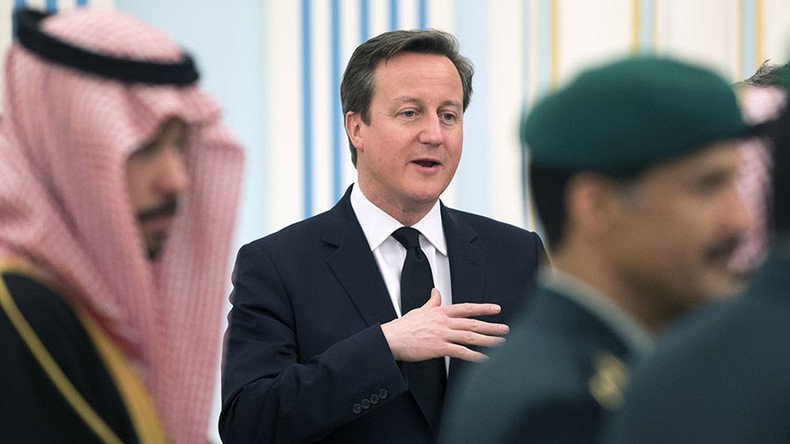Business interests trump human rights, laments Britain’s Foreign Affairs Committee

The promotion of human rights abroad has been “deprioritized” in favor of commercial relations, a biting Foreign Affairs Committee report claims. It comes as a key buyer of British weapons, Saudi Arabia, beheads its 82nd prisoner this year.
Anti-death penalty charity Reprieve warned on Tuesday the Gulf kingdom is well on course to double its 2015 execution tally.
Reprieve said there had been three executions in the last week and four the week before. The latest came mere days after a low-key visit by UK Defence Secretary Michael Fallon aimed at helping to “strengthen the UK-Saudi defense relationship.”
Gulf news agencies reported that he spent time with Prince Mohammed bin Nayef bin Abdulaziz, who is in charge of internal security measures that are often described as oppressive.
The Saudi regime is a major buyer of UK arms and is viewed as a key ally in the war on terror.
A report by the influential Foreign Affairs Committee has now warned the UK risks devastating consequences if its international commitment to human rights is rewritten to favor business and trade.
The government’s human rights stance is described as changing from highly focused to vague. It has also removed allies like Egypt and Bahrain from its official “countries of concern” list.
The report said that the downgrading “sends an important message to the country concerned” and could make it appear the Foreign and Commonwealth Office (FCO) is now more “hesitant” in defending human rights.
The UK once worked specifically on issues like the death penalty, freedom of belief, women’s rights, internet freedoms and democratization. Now there are three broad categories: democracy and law, rules-based international relations and human rights.
The Committee suggested Britain’s reputation and influence could be damaged. It’s chair, Tory MP Crispin Blunt, told the Mail on Tuesday the FCO’s “undermining” of otherwise “excellent human rights work” needs to be “remedied.”
“We recommend that the FCO is more mindful of the perceptions it creates at Ministerial level, especially when other interests are engaged such as prosperity and security, as is the case with China, Egypt and Saudi Arabia,” the study concludes.
Authoritarian Gulf states are not the only cause for concern among human rights NGOs. On Tuesday Reprieve also highlighted the plight of a British political activist held in Ethiopia on death row.
Father of three Andy Tsege was “kidnapped” at an airport in Yemen and taken to Ethiopia in 2014, and has been detained ever since while awaiting execution, according to Reprieve. The UN and EU have both called for his release. The UK has remained silent.
During an official visit in 2015, then-Africa Minister Grant Shapps said the UK stood “shoulder to shoulder” with the east African nation. It has since emerged the UK is providing funding for Ethiopian security forces.
Commenting on the report and on Tsege’s plight, Reprieve death penalty expert Maya Foa said “private diplomacy” was not enough and that the FCO must show it is “committed to ending human rights abuses, by our allies and others.”












